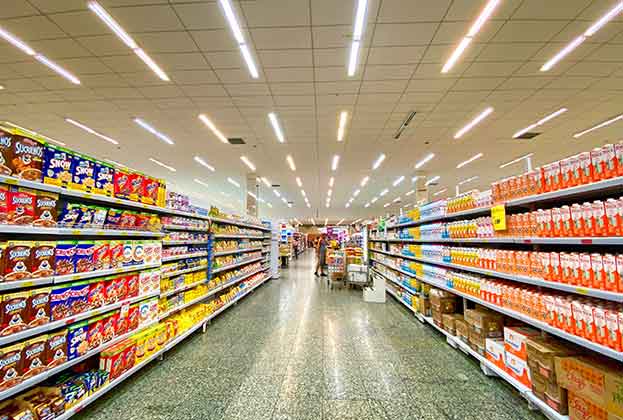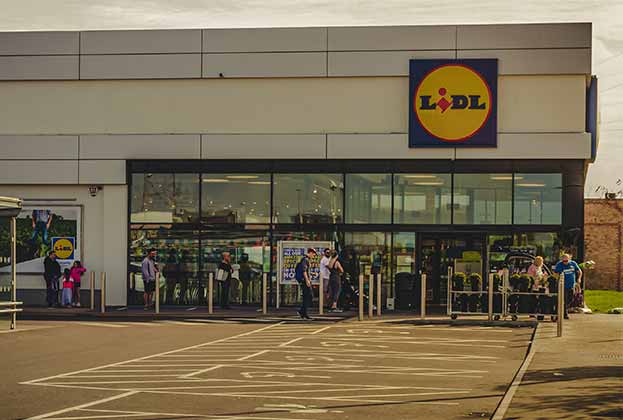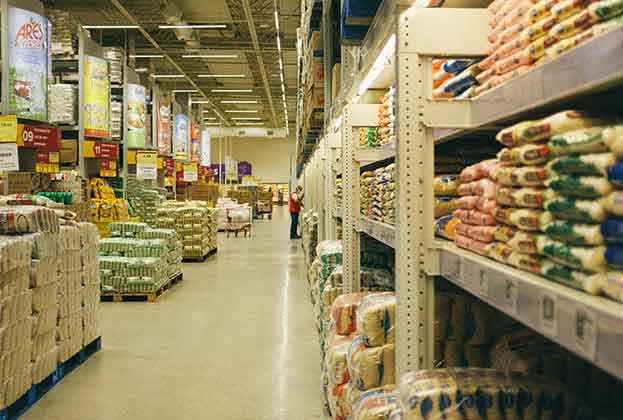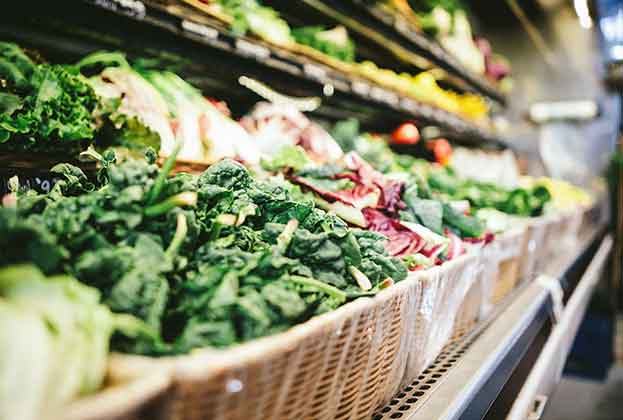Pandemic-related uptick in trading results has been felt across all brands and sectors; however, independent retail operators have gained traction in the market in a year where consumers have stayed at home and increased their local grocery consumption
Mercadona is the dominant foodstore operator brand in Spain with more than 14% of the market. Only DIA and Coviran have a larger portfolio of stores, however, both these brands are convenience operators, whereas Mercadona is the country’s most prominent mid-size to large format operator (average store size is just over 2,000 sq m). Mercadona chooses not to spend capital on advertising or marketing campaigns, but instead dedicates much of its resources to eliminating unnecessary costs in its packaging. This allows them to pass the savings on to the consumer without necessarily compromising on the quality of the products, which means the brand is considered to be a popular value-orientated local success story.
Like the other top 10 retailers, Mercadona saw improvements in its overall and food and grocery sales, however, the greatest was undoubtedly in its online food and grocery sales, the most significant of its competitors with an increase of close to 60%. The operator's strong network of stores located in towns and cities across the country have clearly given the brand the ability to facilitate and service such a dramatic increase in consumer demand through this channel.
Carrefour has also benefited from the depth of its physical store provision, choosing to take the opportunity to significantly grow its portfolio in the same way it has in its domestic market, albeit to a lesser extent. The grocer has opened an additional 28 stores in the last 12 months after posting an uptick in grocery sales of 4.4%, as well as a considerable jump in fortune in online grocery sales, similar proportionally to those seen for Mercadona. In 2020, Carrefour completed the acquisition of 172 Supersol supermarkets and convenience stores, mainly located in Andalusia and the Madrid region.
The market share position of each of the top 10 grocery operators in Spain has retracted a little (albeit each by less than 1%)
Eri Mitsostergiou, Director, European Research
It is important to note that despite an improvement in performance in the last 12 months as a direct result of the pandemic, some brands have still felt it necessary to significantly rationalise their portfolios and streamline their businesses. DIA is a convenience operator that has closed 285 of its convenience stores in the last year, reducing its portfolio to 3,800. Eroski reduced their network by just under a fifth to 455. Both these examples highlight how the improvement in fortunes for the grocery sector has only, so far, been short-lived, and a sensible strategy that takes post-pandemic market pressures into account is perhaps a sensible one.
The market share position of each of the top 10 grocery operators in Spain has retracted a little (albeit each by less than 1%). This reduction suggests independent operators outside of the top 10 have collectively gained some ground, taking a small proportion from each of Spain’s major foodstore operators. The role of small suburban convenience stores and independent shops, whether standalone or on small shopping parades, has become increasingly prominent since the onset of the pandemic. They allow consumers to make smaller and more frequent, essential, ‘top-up’ purchases in smaller units close to their homes as consumers attempt to reduce the risk of social contact, potentially long queues and making any unnecessary journeys. As a result, we have become much more reliant on what is local to us in addition to our larger, less frequent supermarket shop.
Despite no internet sales offer, Lidl has gained a foothold in the market growing its presence by 24 stores in the last 12 months. Mercadona’s popularity highlights the importance the Spanish consumer places on value. With a mantra similar to that of Mercadona, Lidl has become Spain’s only other major value operator with a 2.9% share of the overall market.
Read the articles within Spotlight: European Food and Groceries Sector below.
.jpg)







